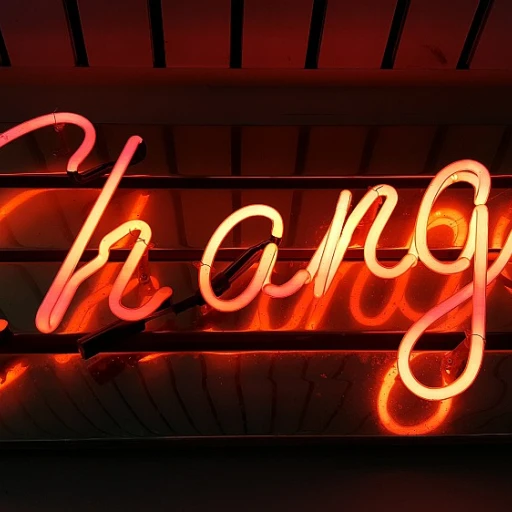
Understanding the Importance of Good Interview Questions
Recognizing the Role of Thoughtful Questioning in the Candidate Experience
The interview process is the heart of any hiring strategy, a pivotal moment where your questions can either make or break the candidate's engagement with your company. Crafting effective interview questions not only shapes the outcome of a hiring decision but also plays a crucial role in portraying your company culture and values to the candidates. Understanding the importance of good interview questions means acknowledging their power in determining the candidate experience. Some candidates are evaluating the company just as critically as they are being evaluated. Well-thought-out questions can showcase an organization’s interest in hiring individuals who are the best fit for the role and who will complement existing team members. Employing the right questions helps candidates to showcase a wide array of skills, from critical thinking to communication skills, essential in today's dynamic work environment. Crafting best interview questions begins with understanding the distinction between different types of questions, like behavioral and situational interview questions. These questions help you gauge more than just a candidate's qualifications; they provide insights into their soft skills and problem-solving abilities. Effectively utilizing skill-based questions during the interview will help in selecting a candidate who aligns with the specific demands of the job and your team’s dynamic. To gain further insights on how thoughtful questioning can be seamlessly integrated into the candidate experience, consider exploring this mastering empowerment through situational questions.Types of Questions to Enhance Candidate Experience
Leveraging Behavioral and Situational Queries
Creating a positive job interview experience starts with selecting the right mix of questions. While you may be inclined to focus heavily on technical skills, it's imperative to incorporate both behavioral and situational interview techniques for a well-rounded assessment. Behavioral questions invite candidates to describe past experiences, emphasizing their soft skills and problem-solving capabilities. For example, a candidate might be asked to describe a time they overcame a challenge in a team setting, offering insight into their communication skills and ability to work collaboratively with team members. Such questions help reveal how the candidate fits into your individual company culture, beyond what their resume indicates. On the other hand, situational queries present hypothetical scenarios, allowing you to assess critical thinking and the potential approach a candidate might take when faced with future job tasks. This can be particularly telling of their readiness for the role and how effectively they might integrate with your existing team. Striking a balance between these question types ensures a comprehensive interview process. This strategic mix not only enhances your ability to gauge the candidates' capabilities, but also helps create an engaging interview that will leave a positive impression on them. For further in-depth analysis of situational questioning techniques, you might want to explore more about mastering empowerment through situational questions in candidate experience. The goal of employing diverse interview techniques is not merely to fill a position, but to ensure that both the candidate and the company benefit from the hiring decision.Balancing Open-Ended and Specific Questions
Balancing Comprehensive and Specific Queries
In the realm of job interviews, crafting questions that perfectly balance open-ended and specific inquiries is crucial to ensuring a successful candidate experience. Both types of questions play distinct roles in evaluating a candidate's fit for the role and the company culture. The art lies in knowing when and how to deploy them, optimizing the interview process. Starting with open-ended questions, these are designed to give candidates the freedom to provide answers that highlight their critical thinking and problem-solving abilities. They encourage candidates to share extensive details about their skills, experiences, and how they perceive themselves integrating into the team. For instance, asking a candidate to "describe a time when they had to overcome a challenging situation at work" allows the interviewer to gauge not only problem-solving skills but also communication skills and adaptability. On the other hand, specific questions are essential for assessing particular technical skills or expertise required for the position. These questions help focus on certain areas of the candidate's experience, ensuring that they possess the necessary hard skills for the role. For example, you might ask about the specific methodologies they have used in previous roles or their familiarity with particular industry standards. Striking a balance between these types of questions will help uncover not only the qualifications of the candidates but also their potential cultural fit within the company. By carefully interweaving open-ended queries with pointed ones, interviewers can paint a fuller picture of the candidate, both as a professional and a potential team member. For further tips on enhancing candidate experience through effective questioning, consider exploring background questions strategies to enrich your interview framework.Avoiding Common Pitfalls in Questioning
Steering Clear of Questioning Traps
Crafting effective interview questions is essential to a seamless interview process. Yet, it's easy to fall into traps that can undermine the experience for both the hiring team and candidates. Here’s how to avoid those pitfalls:- Leading Questions: These types of questions can inadvertently guide candidates toward providing a specific answer, which may not truly reflect their thoughts or skills. Instead, aim to ask open-ended or situational interview questions that allow candidates to showcase their critical thinking and problem-solving abilities.
- Over-complicated Questions: Simplicity in questioning often yields better insights. When questions are too complex, candidates might struggle to comprehend them, which can lead to unclear answers. Ensure your questions describe time and scenarios clearly to assess the candidate’s fit for the position effectively.
- Rapid-fire Questioning: Giving candidates ample time to think and respond is crucial. A relentless barrage of questions can create unnecessary stress, hindering the assessment of their true skills and communication skills.
- Repetitive Questions: Avoid redundancy in your questions. While it may seem beneficial to circle back on certain points, it can frustrate candidates and give the impression of an unorganized interview process. Instead, structure your questions to cover a broad spectrum of the role, job requirements, and company culture.
Tailoring Questions to Fit the Role and Company Culture
Customizing Questions for Role and Culture Compatibility
Creating interview questions that align with the role and the company culture is crucial for fostering a positive candidate experience. When questions are customized, candidates can better demonstrate how their skills and experiences match the position and organizational values. Consider the following strategies:- Role-Specific Questions: Tailor your questions to the essential skills and qualifications required for the job. Whether focusing on technical abilities or industry knowledge, queries should directly relate to the functions that the candidate will perform if hired.
- Cultural Fit: In addition to skill-based inquiries, it’s beneficial to include questions that reflect the company’s values and work environment. For instance, if teamwork is a core part of the culture, ask about the candidate’s experience working with team members and how they contribute to a collaborative setting.
- Behavioral and Situational Questions: These types of questions are effective in understanding how candidates apply their skills in real-world scenarios. For example, request a candidate to describe a time they solved a significant problem at work, which can reveal problem-solving abilities and critical thinking skills.
Evaluating Candidate Responses Effectively
Insight Into the Candidate's Responses
Evaluating a candidate's responses effectively during a job interview is essential in determining their suitability for the position. This involves more than just listening to their answers. It's about understanding the depth of their communication skills, problem solving abilities, and critical thinking. When crafting interview questions, consider how responses can reveal both soft skills and technical expertise, especially in a role that demands a blend of both.
Behavioral questions, for instance, are an excellent way to gauge past actions as they often predict future behavior. Asking candidates to 'describe a time' they handled a particular challenge or 'describe' their role in a project helps hiring managers assess a candidate’s ability to fit into the company. These questions can reveal not only the hard facts but also how candidates work alongside team members, a crucial element of company culture.
Employing situational interview questions will help you understand how candidates might react in specific scenarios they might face in your organization. These queries pose hypothetical situations, compelling candidates to demonstrate problem-solving skills on the spot. In doing so, you can estimate their potential performance.
It's also beneficial to measure the skill set required for the role by incorporating skill-based questions. These interview questions help paint a clearer picture of a candidate's capabilities and how well they align with the job responsibilities. The best interview questions are those that challenge candidates to think critically about their experiences and articulate them effectively.
Finally, time is of the essence during an interview process. Aim to structure your questions in such a way that helps you to determine the best fit for the position efficiently. This not only helps in making an informed hiring decision but also leaves candidates with a positive impression of the company's interviewing protocol.













